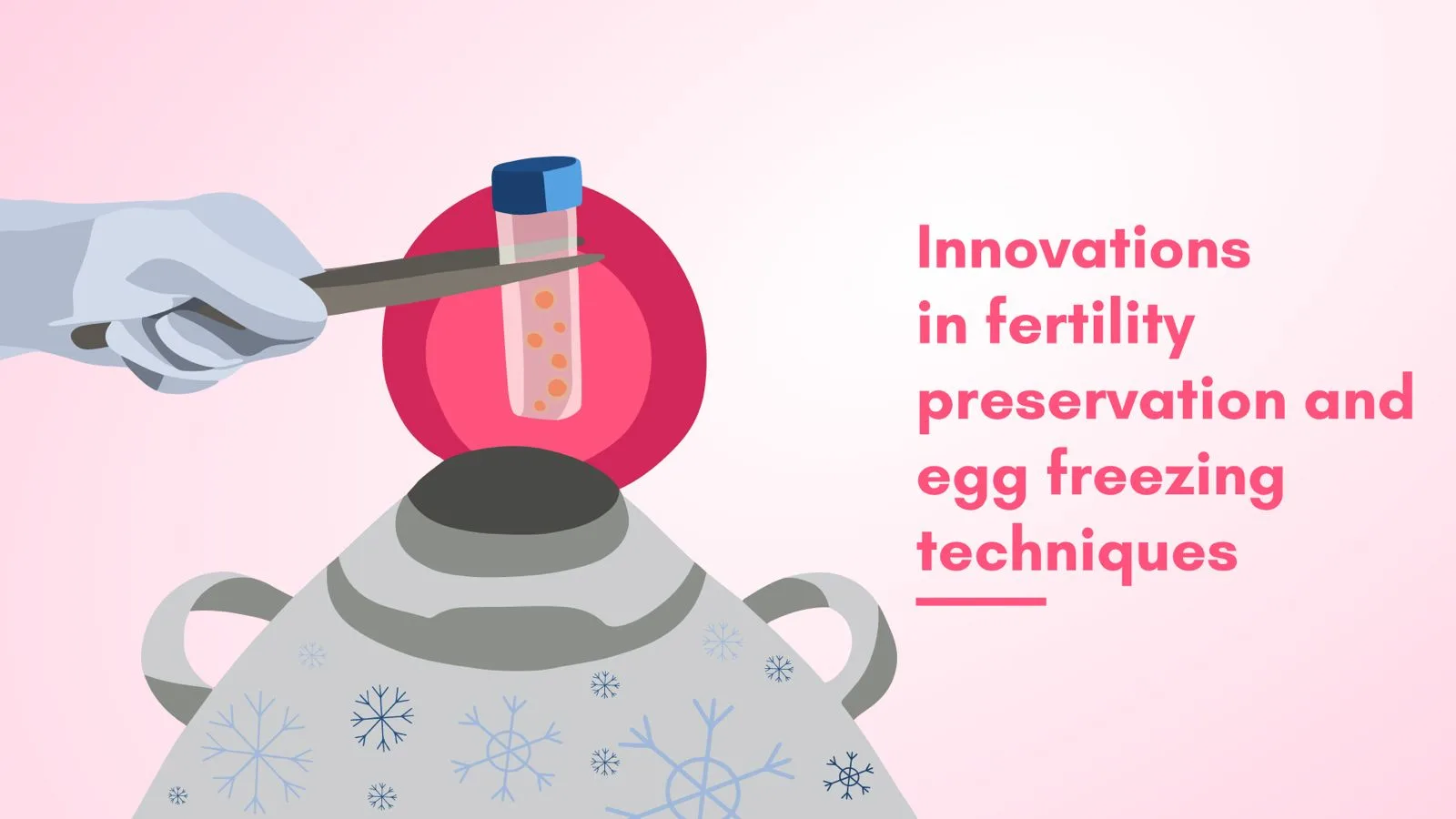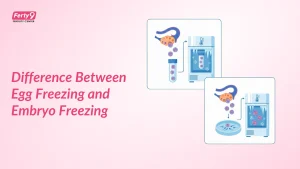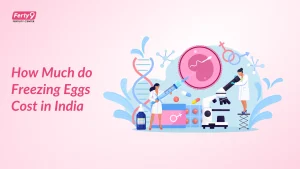Innovations and new techniques in fertility preservation have been a boon for couples who wish to become parents with fertility complications. Scientists, clinicians, and embryologists keep finding new ways of egg freezing and other infertility treatments because their necessities are increasing with time.
Many individuals want to delay their pregnancy due to their other priorities in life. freezing eggs helps those who want to have their kids after their conception age has passed. Egg freezing also benefits women undergoing medical treatment that may damage their reproductive system.
Eggs and sperm are frozen in the laboratory so that they can be fertilized in the future through assisted reproductive technology (ART). Some traditional and innovative approaches to fertility preservation have been in practice for decades. Let’s read further to learn about the evolution of fertility preservation techniques and the role of fertility centers with innovations.
Traditional Approaches To Fertility Preservation
The traditional egg freezing procedure has been in practice for many years and has protected millions of females’ reproductive potential so far. The approach helps women overcome their reproductive challenges, whether it is declining age, undergoing surgeries, or any type of infertility issues. Some of the approaches that have been employed ever since fertility preservation came into existence are:
Oocyte Cryopreservation (Egg Freezing):
It’s the process where unfertilized eggs are retrieved from a woman’s body and are frozen for later use.
Hormonal Suppression:
This approach helps preserve the fertility of women who go through cancer treatment by reducing the impact of therapies and medications on the ovaries.
Ovarian Tissue Cryopreservation:
This is an approach in which part of the ovary that contains immature eggs is removed and frozen for the time being. Later, this tissue can be transplanted back into the body, restoring ovarian function after certain medical interventions.
Embryo Cryopreservation:
When the couple opts for In Vitro Fertilization (IVF), multiple eggs can be fertilized with sperm in a laboratory, and these embryos can be cryopreserved for later use.
Cryopreservation of Sperm:
Some medical surgeries and treatments can affect sperm production and quality, so sperm cryopreservation is the approach for those individuals to collect and freeze it for future use.
Also read: Freezing Sperm Reasons, Procedure, Outcomes, and Costs
Innovations In Egg Freezing Techniques
The Medical trajectory has seen several innovations in egg freezing techniques. It has contributed to improving the success rates and overall efficacy of fertility preservation. The development of enhanced techniques contributes to better post-thaw survival rates and the overall success of women’s freezing egg procedures. Let’s have a look at some of the notable advancements in egg freezing techniques.
Vitrification:
This has become the standard method of egg freezing as it is faster than the traditional approach. With this procedure, eggs are cooled down to the temperature where they solidify quickly and have rare chances of cellular damage.
Artificial Intelligence:
Implementing AI algorithms into fertility treatments helps embryologists and clinicians make more informed decisions. It helps them analyze important factors related to egg preservation, such as quality.
Xiltrix Alarm System:
It is one of the most sophisticated alarm systems that keeps the laboratories in the IVF centers alive 24*7. It monitors the incubator’s temperature, humidity, VOC, and CO2 levels in real-time and alerts the staff if any signs of calamities are observed.
Time-Lapse Imaging:
This technology helps monitor the egg’s behavior during the freezing process in real time and acknowledges the optimal time for vitrification.
Microfluidic Devices:
These devices are used to purify the eggs before freezing and remove the contaminants, which helps improve the quality of frozen eggs.
Optimization Of Cyroprotectant Solutions:
This innovation helps protect eggs from cellular damage during freezing. It also helps to improve the survival rate and viability of eggs.
Suggested Read: Advanced IVF Fertility Labs: What’s New at Ferty9?
Emerging Technologies In Fertility Preservation
Freezing eggs means keeping them in the laboratory and maintaining their viability and quality so that they can be used in the future. Although several innovative approaches exist, scientists are improving the technologies and developing new ways to minimize the side effects of freezing eggs.
3D bioprinting, in vitro maturation (IVM), AI implementation, gene editing, and nanotechnology are some of the emerging technologies in the fertility preservation field.
These new technologies may empower medical scientists and individuals to take the reproductive landscape into their own hands. This will be a revolution in biotechnology that will enable people to store their eggs/ sperm and fertilize them when they are prepared for pregnancy.
Related Read: Importance of Fertility Preservation in Family Planning
Personalized Approaches To Fertility Preservation
The demand for Egg freezing in India is rising with time because of medical complexity and social reasons. There is a personalized approach associated with it because each individual is different.
The fertility preservation approaches include shared decision-making, comprehensive fertility assessment, tailored treatment plans, preventive measures for egg freezing side effects, and monitoring. This approach not only empowers people to make informed decisions regarding fertility preservation but also helps them to achieve their long-term family goals.
Also Read: Tips and Support for Fertility Preservation Decisions
Costs Associated With Egg Freezing And Fertility Preservation
The cost of freezing eggs in India is lower than in other countries. However, the cost estimation depends on how long one wants to freeze the eggs, as longer storage time can come with significant costs. When one visits the fertility center, the cost is determined by the type of procedure a couple/ woman will undergo and the initial screening and medication.
The egg freezing cost in India includes initial diagnosis, injections and medications, tests and consultation, egg retrieval, egg screening, freezing, maintenance, and many more. The actual cost is calculated according to the services you need. The charges may differ from clinic to clinic and individual needs, and they can be reduced after the examination if the results show the person is healthy and requires less medication.
Also Read: Frozen Embryo Transfer Process Step By Step
Overcoming Challenges In Fertility Preservation
One of the primary challenges associated with fertility preservation is how to freeze eggs and their related techniques. The intended couple also faces the cost of the treatments and the emotional drain. Also, many people are still unaware of egg freezing and its future benefits.
These challenges can be overcome with awareness about the procedure, benefits, and life-changing factors of fertility preservation. People can visit authentic fertility clinics, contact a gynecologist and embryologist, and discuss with them to gain insights about everything related to eggs and fertility preservations.
Also read: How Ferty9’s Fertility Counseling Services Address Your Specific Needs?
The Role Of Fertility Centers In Advancing Preservation Technologies
Scientists, clinicians, and embryologists keep trying to improve and develop new approaches on how to freeze eggs from woman. Fertility centers are the driving force behind the research, implementing new innovative techniques and providing specialized care to the couples who visit these centers. They play a crucial role in advancing preservation technologies.
Egg freezing and preservation are delicate processes that must be performed attentively because a couple’s hopes and future depend on them. Here are some of the best practices and techniques followed by top fertility centers to ensure safe fertility preservation.
- Using toxic-free consumables.
- Using IVF-certified plastics for gametes and embryos.
- Monitoring and detecting lab activities with the RI witness system.
- Ensuring the optimal function of the critical equipment with the Xiltrix alarm system
- Using High-precision microscopes for Monitoring the gametes.
The fertility centers are known to provide the best specialized care and carry out the treatment so that the pain is minimal and bearable. Here, the patients and health providers are educated and trained about what and how to handle things when the egg preservation procedure starts.
Through their significant efforts, fertility centers are pushing the boundaries of every possibility in fertility preservation.
Conclusion
Now, you must have understood egg freezing and how it benefits individuals undergoing medical intervention or wanting to conceive at later ages. The innovations and new techniques associated with fertility preservation are ultimately helping individuals preserve their reproductive options and achieve their family-building goals after fulfilling their priorities in career and life.
Trusted fertility clinics are adopting advanced laboratory techniques, efficient clinical software, Artisan EMR, RI Matching reports, transparent communications, and many more innovations. These techniques and practices are helping thousands of couples conceive and start their families.




























